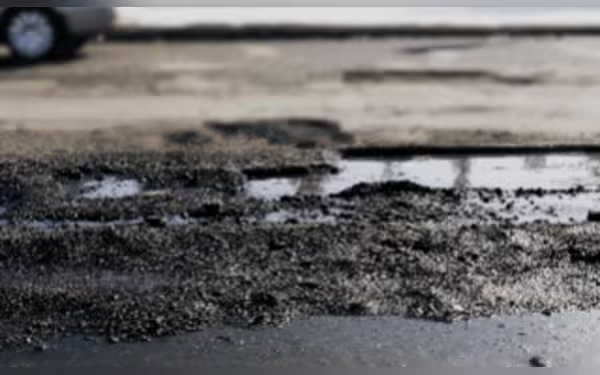Saturday, November 16, 2024 05:54 PM
Karachi Roads in Dire Need of Repair
- Karachi faces severe road maintenance issues.
- Contractors use inefficient methods for road repairs.
- Poor road conditions impact safety and economy.
 Image Credits: dawn.com
Image Credits: dawn.comKarachi's roads are plagued by potholes and poor maintenance, posing safety risks and economic challenges for residents and commuters.
In Karachi, the state of the roads has become a pressing issue for residents and commuters alike. The city, known for its bustling streets and vibrant life, is increasingly plagued by potholes and uneven surfaces. This situation not only causes inconvenience but also poses safety risks for drivers and pedestrians. The problem is exacerbated by the practices of contractors who often open roads to traffic while construction is still ongoing. Instead of using proper machinery like rollers and vibrators to compact the surface, they rely on the weight of vehicles to do the job. This method is not only inefficient but also leads to quicker deterioration of the roads.
According to reports, road repair and maintenance were not originally included in the funding provided by the World Bank. This oversight has left many areas in dire need of attention, as the funds allocated are primarily focused on new construction rather than the upkeep of existing infrastructure. As a result, the roads continue to suffer from neglect, leading to a cycle of poor conditions that frustrate residents.
The impact of these “holey roads” extends beyond mere inconvenience. Commuters face longer travel times, increased vehicle wear and tear, and a heightened risk of accidents. Moreover, the economic implications are significant; businesses suffer when deliveries are delayed, and the overall productivity of the city is hampered. It is essential for the authorities to recognize that maintaining roads is just as important as building new ones.
The situation of Karachi’s roads calls for immediate action. It is crucial for the relevant authorities to ensure that contractors adhere to proper construction practices and that road maintenance is prioritized in future funding plans. Only then can Karachi hope to reclaim its status as a city with smooth and safe roads, allowing its residents to navigate their daily lives without the added stress of “holey roads.”













